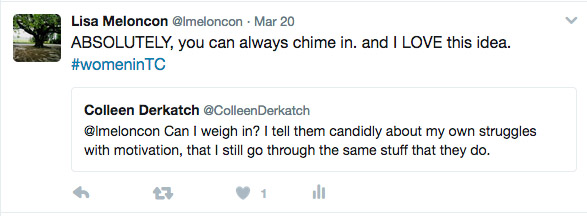We are pleased to post a blog written by Dawn Armfield, Minnesota State, Mankato, that gives some useful tips to consider when you’re getting ready to move to a new place. So for those who have accepted new positions or are still in the process, this is a valuable post that gives you some things to think about. Thank you, Dawn, for writing it! LKM
23 February 2017 by Dawn Armfield
Starting a new position in a new place can be both exhilarating and terrifying. You’re embarking on an adventure of meeting new people, teaching new students, creating new collaborations, and learning new ways of being a professional. The road to starting a new position begins long before the move, however.
You’ve accepted an offer and started boxing up your possessions. Now what? In many ways, this isn’t much different from beginning a graduate degree in a new residence. There are, however, different considerations when moving from grad school to a professional position or from one professional position to another. In this post, I will try to highlight some of the issues I had to engage in between grad school and a new position as well as moving from one position to another.
Housing
Each time I’ve moved during my academic career, I’ve been over 1000 miles from my new home with few resources to allow me to go back and forth to look for housing, set up utilities, look at neighborhoods, etc. In addition, neither of the states I’ve moved to are allowed to give moving expenses, so it was up to me to pay for all moving costs. I relied on the Internet to help me in a lot of ways, but I also relied on new colleagues, classmates, and office staff. When I moved from my Master’s program to my Doctoral program, I owned a house and was trying to sell it, so I knew I had to be frugal and find a new place to live that was economical and yet in a safe and accessible area. When I moved from my Doctoral program to my first professional position, I had just dislocated my patella and could not travel long distances because I was in a full leg brace. These instances forced me to rely on people I didn’t know well to help me find a reliable place to live, give information about utilities, and guide me in a space I wasn’t in yet. In the first instance, I emailed the administrative assistant and my adviser to ask for their recommendations. Not only did they give me advice, but they also connected me with graduate students in the program who went to look at spaces for me.
In my move from my doctoral program to my first position, and in my recent move to a new position, I emailed the department administrative assistant, department chair, and colleagues to ask their advice on where to live, what to expect, and how to find services. Because I rent first, to get a feel for an area, I was focused on rents and supporting services. In my current position, a colleague visited several homes for me to tell me how they looked in person and if they were safe areas for a single woman. Another colleague asked for housing advise and was connected with a different colleague who was relocating for sabbatical and had a house available for a year. When I asked another current colleague about Internet access, she posted to Facebook to ask locals what service they used, if it was reliable, if it would be useful for online synchronous work, and if it was affordable. Her friends and colleagues gave excellent feedback to help me determine what approach to take for that utility.
Each move insured that I had a place to move to, utilities established, and a solid network of colleagues to contact with questions. Asking for help is often difficult, especially when we’re used to doing so much on our own. But asking colleagues for assistance helps with the move in a few ways:
- I found good places to live without having actually been there;
- I made connections with future colleagues;
- Those connections helped me feel like I belonged because I had people to work with and talk to through a stressful situation (even if we didn’t talk about the stress, just having their help was a tremendous gift).
Benefits
One of the biggest issues I had in all of my moves was in dealing with insurance and medications. There’s always a lag when you’re beginning a new position, and I had to make sure that I was able to get my medications without having a break in them because I couldn’t afford to go on COBRA for the interim.
In all cases, I discussed my upcoming moves with my doctors months prior to the move. When it came to the move, they were often able to prescribe me with 90-day subscription refills, rather than 30-day, in order to alleviate that delay in the time that my old insurance stopped and my new insurance began. In addition, this proactive use of time allowed me to find out all of the information I would need to transfer my medical records from one provider to another in a new state. During each of my moves, getting in to see a new primary care physician was a lengthy process. I’ve had to wait for anywhere between 30-90 days to see a physician, so making an appointment, even prior to insurance start dates, helped me make sure that I could see a doctor as soon as insurance does become active.
Many employers have Employee Assistance Programs (EAP) to help with stress, medical care, or financial issues. These systems can also help you find good care in your area. EAPs can often help with mental health issues that are ongoing and/or arise from a new move that adds additional stress to an academic’s life.
While retirement accounts didn’t affect me when moving from my doctoral program to my first position, they were important when I left a full-time position to begin my doctoral program and when I left my first position to begin my second position. In each case, I had been lucky to have been working for state entities so roll-overs and disbursements were fairly easy. However, I still needed to contact the administrator of my retirement funds in order to make sure that my retirement accounts would be available to me once I had moved.
While this will be different for each person, but it is important to know who to call and what the options are for retirement. In one case, I was allowed to roll over my old retirement into my new retirement. In another, I had to cash out (it was a state requirement). Knowing our options and how it will affect us allows us to assess our portfolios better.
Travel funding
In our field, we’re often proposing presentations at conferences a year in advance, so we might be attending a conference in the first month or two of our new position. In my most recent move, I had been accepted to an international conference that would take me away from campus in the second month on the job. To prepare for this, I contacted my department chair 4 months prior to the position beginning to ask:
- Is international travel permissible that early in my career at the school?
- What are the steps I need to take in order to get funding and to be approved for the travel prior to getting to the school and prior to the travel?
- What are other considerations I need to have in order to do this type of travel (classroom support, missing meetings, etc.)?
Mentor
Asking our colleagues doesn’t always help us understand the system, though. Universities are big organizations with multiple levels of bureaucracy and insider information. At each school, I have requested a mentor from outside my department (and often outside my college) to have someone to talk to about different issues that they didn’t have a personal connection with. Not only has this helped me understand how my department is regarded within the larger structure of the university, but it also helps me understand how other departments navigate different situations and allows me to build a network outside of the small microcosm of my department.
Community
One of the best benefits of asking for help in all of the circumstances above is that we begin to get to know people in our new town and job and to connect with them. This often leads to invitations for outside collaborations and meetings. The colleague who helped me by looking at homes for me knew when I was arriving in town and set up a dinner to welcome me into town. This allowed me to get to know her and her partner better, and to feel like I had a closer connection with her once I was a part of the community.
As a researcher and writer, I wanted to connect with others who might be on the same trajectory that I am — who may need to have publications and presentations for tenure. I reached out to a colleague in my department who is at about the same place I am in our academic careers to ask about a writing/research group. She extended an invitation to join her and another colleague and I now feel as if I have a good writing support group to help me be successful in that area of my career. However, if that group hadn’t been available, I would have asked if we could begin one together and build on it. Camaraderie is often one of the most important elements of success in the first year of a program.
New Position
Moving to a new university or college can bring in a lot of confusion, concerns, and missteps because we don’t know the culture, aren’t sure of the protocols, and don’t know key players for each situation. Many of the faculty in our new departments haven’t been a new employee in many years and don’t always know all of the steps that go into being in a new position, or the steps have changed since they were new. However, they do know the culture and they do know who to contact if there is a question.
I have relied heavily on my department chair and my technical communication program chair to help me navigate the often cumbersome and sometimes political procedures a new employee must learn. I asked about new employee orientation (When and where is it? When do I need to be on campus? Where do I park? What, exactly, do I need to attend?), parking (What is the best parking to get and what are the fees?), classes (Where is this building in relation to my office? What is in the classroom? Can I see it before I begin teaching?), and office setup.
This last may seem laughable to those of you who get office/technology funding. However, each position I have moved to at the teaching universities I’ve been at have had no furniture in them and it was up to me to figure out how to navigate the procurement process. So I asked questions. I asked the administrative assistant for assistance. I asked colleagues what they’ve done.
Asking for help and clarification is one of the most important parts of being a new colleague. It is not a bother to ask our colleagues for assistance. Most of them have been there and are happy to help — and often know the right questions to ask and will point you in the most efficient direction to get the questions answered.
Patience
Above all, patience is the one thing I had to learn and what aids me the most in a move. A big move is a life-changing event and is often stressful. It won’t all go smoothly. A new apartment or house might be noisier than you thought it would be or it might be further from the grocery store than you had hoped. Learning the ropes, politics, and personalities in a new position is an ongoing process and takes time. I am often uncomfortable walking into my first meeting or the new employee orientation. But I’m not alone. Many people are uncomfortable. This requires me to find my space and occupy it in a way that will help me feel more comfortable.
I’ve learned to be patient with my colleagues, landlords, and service people. Most of them are there to help me and will do so willingly. They might not have all of the answers, but going into a situation with an open mind and patience has helped me progress more efficiently so I can find the answers to my questions.
Careful planning will alleviate some of the stress, but being open to new experiences also helps us find our space.
Congratulations, and good luck in your new position!



